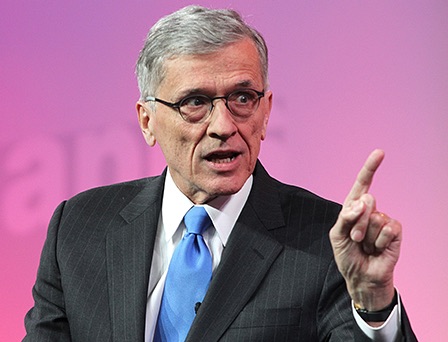Wheeler on Box-Ditching Plan: Trust But Verify

The smarter way to stay on top of broadcasting and cable industry. Sign up below
You are now subscribed
Your newsletter sign-up was successful
FCC chairman Tom Wheeler told Congress this week that while he is "heartened" by the National Cable & Telecommunications Association's "ditch the box" set-top alternative, he is taking the "trust but verify" approach espoused by President Ronald Reagan.
That was one of his messages to the House Communications Subcommittee according to prepared testimony for the subcommittee's July 12 FCC oversight hearing.
"I appreciate that the industry has come to the table," he said. "Everyone can agree that consumers should be empowered to watch TV how they want, with the device, app, or interface that they choose. We need to understand more of the details of its proposal, as well as the perspectives of all of the other stakeholders."
FCC staffers have a laundry list of questions for cable operators about the proposal, as B&C reported last week.
"We need to ensure that consumer privacy is protected; that copyright protections and the interests of programmers are protected," Wheeler said, adding: "We need to ensure that competition and innovation is empowered. And, of course, we need to ask, as always, whether Commission action will fulfill the Congressional mandate that you all sent to us."
Wheeler also signaled that the FCC's broadband privacy proposal, which has drawn fire from Republicans, including staffers on the Communications Subcommittee, is still high on his to-do list.
"Last week, the window for reply comments closed, and FCC staff is diligently working through these public comments. I am confident we’ll be able to arrive at final rules later this year."
The smarter way to stay on top of broadcasting and cable industry. Sign up below
There are a lot of comments to work through. The docket is the most active of any FCC proceeding by a country mile, with over 209,000 comments in the last 30 days alone—the next busiest over that time period is the Open Internet docket at a little north of ten thousand.
It has been only three-and-a-half-months since the last oversight hearing in the subcommittee, a point Wheeler makes in his testimony. But they have been busy weeks, including the FCC's big network neutrality rule victory and the launch of the spectrum auction.
Wheeler called the former a "landmark legal victory," and said of the latter that the reverse auction system went off "without a hitch." That portion of the auction ended June 29. The FCC will have to raise about $88 billion in the forward portion of the auction to pay for that 126 MHz of spectrum given up by broadcasters in the reverse portion. But Wheeler reminded the legislators that the FCC was prepared to return to the reverse portion and lower that 126 MHz clearing target if that sum can't be raised from wireless operators in the forward portion.
"Depending upon that response, it’s possible that we would need to move to additional stages to find the level where demand meets supply," he said. "The Commission intentionally designed the auction to account for the possibility that supply and demand might not match at the initial clearing target. It’s something we planned for, and we’re fully prepared to implement if the need arises."
Contributing editor John Eggerton has been an editor and/or writer on media regulation, legislation and policy for over four decades, including covering the FCC, FTC, Congress, the major media trade associations, and the federal courts. In addition to Multichannel News and Broadcasting + Cable, his work has appeared in Radio World, TV Technology, TV Fax, This Week in Consumer Electronics, Variety and the Encyclopedia Britannica.

